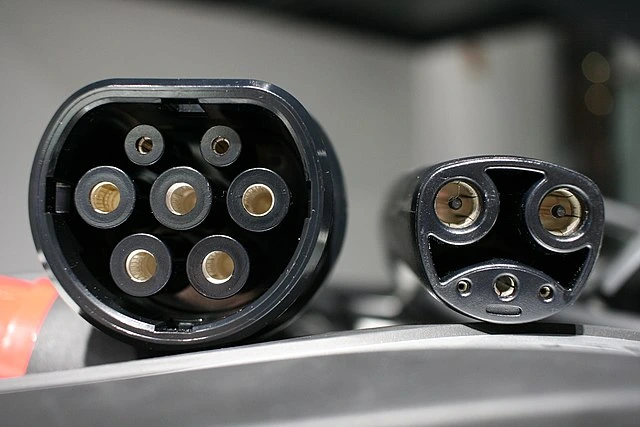Two major EV manufacturers in North America, Ford and Tesla have formed a significant partnership. Ford has decided to implement Tesla’s North American Charging Standard (NECS) for its upcoming electric vehicles, which is a departure from the widely used Combined Charging System (CCS). The goal of this move is to take advantage of Tesla’s Super Charger connector design and access to the expansive Supercharger network. This post provides insights into the EV industry regarding this partnership.
In this post
- ➤ Understanding the Significance of Ford’s Decision
- ➤ CharIn’s Response and Misconceptions
- ➤ Ford and Tesla’s Collaborative Efforts
- ➤ Addressing Charging Infrastructure Concerns
- ➤ Implications and Future Prospects
Understanding the Significance of Ford’s Decision
NECS, which was open-sourced by Tesla, offers a more efficient and user-friendly design compared to CCS. Ford’s adoption of NECS not only strengthens Tesla’s charging standard but also challenges the dominance of CCS in North America. The sheer volume of electric vehicles delivered by Tesla has already made NECS more popular in the region. Ford’s involvement could potentially lead to a domino effect, encouraging other automakers to adopt NECS, facilitating a better connector design and wider access to the Supercharger network.
CharIn’s Response and Misconceptions
The association responsible for CCS, CharIn, has expressed its discontent with the partnership between Ford and Tesla. They argue that CCS is the only “global standard” and stress the significance of global interoperability. Nevertheless, CharIn overlooks the superior design of NECS and its potential to offer a more smooth charging experience. Their unwillingness to endorse adaptors and preference for exclusive funding for CCS chargers raises concerns about their dedication to consumer convenience and choice.
Ford and Tesla Collaborative Efforts
Ford’s partnership with Tesla extends beyond access to the Supercharger network. Ford EV owners will gain access to Tesla’s 12,000 Supercharger stations through the Ford mobile app, starting next year. Furthermore, Ford plans to incorporate Tesla-style charging ports in its next-generation EVs, allowing owners to charge at Tesla Superchargers without the need for an adapter. This collaboration showcases a unique dynamic between two rival automakers and their shared commitment to enhancing the EV charging infrastructure.
“I think the first step is to work together in a way we haven’t, probably with the new EV brands and the traditional auto companies.” Ford CEO Jim Farley told CNBC.
Addressing Charging Infrastructure Concerns
In order to increase the adoption of electric vehicles, having access to a dependable and extensive network of charging stations is crucial. To address concerns regarding the availability and dependability of these stations in the US, Ford and Tesla have joined forces. Tesla’s Supercharger network has gained recognition for being both dependable and superior, and with the adoption of NECS, Ford aims to offer their customers a hassle-free charging experience.
“It seems totally ridiculous that we have an infrastructure problem, and we can’t even agree on what plug to use,” Farley said.
Implications and Future Prospects
Ford’s decision to align with NECS and leverage Tesla’s charging standard marks a significant step toward a unified charging infrastructure. Other EV manufacturers may follow suit, leading to the adoption of NECS and potentially making it the de facto standard. The charging industry may need to retrofit existing stations with NECS connectors to accommodate the growing demand from multiple automakers. This partnership could have positive implications for Ford and Tesla, boosting EV adoption and potentially opening doors for federal funding.
Conclusion
Ford has made a daring move by investing in Tesla’s Supercharger network and embracing NECS. This marks a significant turning point in the development of electric vehicle (EV) charging infrastructure. Ford’s focus on enhancing the customer experience and utilizing the benefits of NECS is a key step towards creating a uniform and effortless charging experience. As the EV industry continues to grow, it will be imperative for car manufacturers to collaborate and adopt superior charging standards. This will facilitate the widespread adoption of EVs and promote sustainable transportation.

